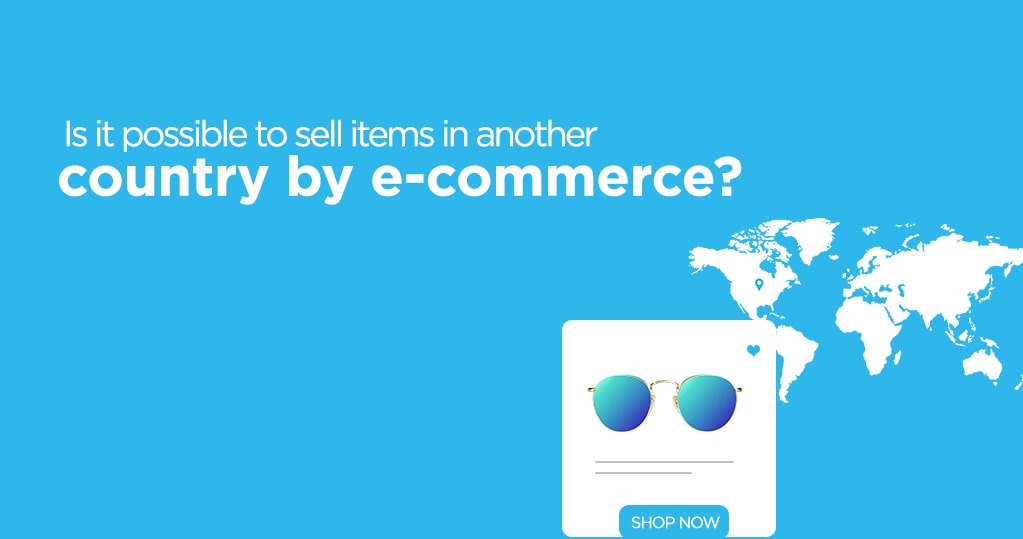Handy Reasons On Picking Sellvia Shopify Dropshipping Services
Handy Reasons On Picking Sellvia Shopify Dropshipping Services
Blog Article
How To Assess Product Sourcing Suppliers, Dropshipping And Supplier Integration Services For Us Markets By Using Shopify, Wordpress And Amazon Sellers
You'll need to assess each platform in terms of reliability of suppliers, speed of integration and suitability for U.S. customers. Dropshipping is a dropshipping option. Here's what you should look for on Amazon Seller and Shopify:
1. Amazon Seller
Fulfilled by Amazon FBA vs. Merchant Fulfilled. Amazon's FBA service will allow you to meet your customers' expectations by offering warehousing facilities and quicker delivery. FBA does require that inventory be bought in advance. This is why it's not in line with the dropshipping model that is commonly used.
Amazon's Dropshipping policy: Amazon's dropshipping policies require that you signify yourself as the seller listed on your account. Third-party vendors must be reliable with regards to quality and delivery to avoid account suspension due to issues with orders or negative feedback. Be sure that any supplier you choose meet Amazon's strict guidelines for packaging and shipping.
Amazon is less flexible with suppliers as Shopify or WordPress. If you dropship on Amazon then you'll need to choose suppliers who meet Amazon's strict requirements for delivery, or choose private label FBA as a way to get speedier delivery.
Amazon Seller Evaluation:
Examine the reliability of the supplier. Check if the company can meet Amazon's shipping expectations.
Check for compliance with Amazon’s policy on packaging, labeling and returns.
Communication with your supplier A clear and consistent communication with the supplier is crucial, since you must be prepared to handle any problems that may arise. Select suppliers that maintain consistent levels of quality and inventory levels to avoid interruptions.
2. Shopify
Supplier Integration Options: Shopify offers numerous supplier integration apps like Oberlo, Spocket, DSers and Modalyst which make it simpler to locate products and to sync with dropshipping companies. The majority of these apps permit U.S.-based suppliers to cut down on delivery time.
U.S. Supplier access: Tools such as Printful or Spocket are made to procure items from U.S. manufacturers or ones who have U.S. facilities. This speeds up shipping substantially for U.S. customers.
Automated Syncing - Shopify's apps automate the synchronization of product listings, inventories, and prices with the suppliers. This decreases the possibility that you'll sell out of stock products or commit pricing mistakes. Automated fulfillment is an excellent option to decrease manual work while keeping order statuses current.
Niching and Product Variety Examine whether the integrations provide you with access to products that are in your particular niche.
Shopify: Assessment Steps
U.S. Supplier Availability - Review which suppliers are located in the U.S. or provide fast shipping options for U.S. Spocket and Printful are ideal for U.S.-based sources.
Review of the Product and Quality Read reviews and when possible, try the product. Reliability of the supplier can be variable and feedback from customers on the quality of products is crucial for ensuring that customers have positive experiences.
Customer Service and Supplier Response Test the suppliers' response time, particularly when problems arise. Customers will be more satisfied if suppliers provide reliable support.
3. WordPress (WooCommerce)
Flexible Sourcing Using Plugins : WooCommerce is a plugin for WordPress offers a lot of flexibility in sourcing products, because of plugins like AliDropship Spocket and WooDropship which can sync the product of your suppliers directly to your shop.
U.S.-Based Supplier Options Similar to Shopify, WooCommerce integrates with U.S.-based suppliers via Spocket, Printful, and other providers, making it ideal to speedy delivery in the U.S. market.
Product Customization and Private Label Options: WooCommerce may also integrate with private label and custom print providers like Printful, which allows for product branding and customization--helpful for establishing a unique brand identity.
Manual Fulfillment Option: Even though WooCommerce can automate fulfillment of orders by using a variety of plugins, you'll have greater control over the process, making it much easier to modify and fix issues if needed. This is a compromise because it's more difficult to setup and manage than Shopify.
WooCommerce Assessment:
Compatibility: Ensure that the plugins are compatible with WooCommerce. Check for automatic syncing for products, prices and stocks. This is essential to ensure that orders are managed on a large scale.
Supplier Quality Control: Research the reliability and reputation of suppliers you are considering, particularly U.S.-based ones. Look for suppliers with good customer service and consistent quality of their products and availability.
WooCommerce offers flexibility when it comes to pricing, which is beneficial when your markups for products need to be altered frequently because of circumstances in the market or prices of suppliers. View the most popular Sellvia review for site advice including platform online shop, ecommerce services, online business to buy, creating an ecommerce website, create a online shop, drop shipping, open online business, start website to sell products, amazon commerce, online business for sell and more.
How To Assess The Security Of Payment Processing And Security
If you are considering dropshipping your products for delivery to the U.S., it is important to review the security and processing of payments, and compliance for Amazon Seller, Shopify (WooCommerce), and WordPress. Every platform comes with its own options regarding fees and compliance or security. It's crucial to ensure secure and effective transactions, since this builds customer confidence and reduces risk. Here's a detailed breakdown of the steps to take when evaluating each of the platforms.
1. Amazon Seller
Payment Processing:
Amazon Pay: Amazon is responsible for all payments processing on its marketplace. Customers benefit from a consistent, streamlined service. Amazon Pay allows buyers to use the payment methods they have saved within their Amazon account. This increases convenience and increases conversion rates.
Amazon will pay out payouts to sellers every two weeks (14 day interval). Amazon deducts any fees (such FBA, referral, or other fees). before disbursing payments. Knowing the referral fees charged by Amazon is vital, as they differ based on the product category.
Security and Compliance
PCI DSS compliance: Amazon is in compliance with Payment Card Industry Data Security Standards. (PCI DSS) which guarantees that the credit card details of the customers is safe and processed. Amazon manages PCI Compliance, which means that sellers are not obliged to do this.
Fraud Prevention Amazon employs AI-powered fraud detection and prevention tools to keep track of transactions, decreasing the possibility of fraudulent purchases. Amazon also provides A to Z Guarantee, which protects both the seller and the buyer from high risk transactions.
Account Security Amazon implements Multi-factor Authentication (MFA) on seller accounts. MFA adds another layer of protection from unauthorised access.
Amazon Seller Assessment:
Check out Amazon Payment Disbursement Terms Understanding the payment schedule of Amazon as well as fees and other details will allow you to know if your cash flow is in line to your business. Referral fees can accumulate quickly, so make certain to review your category's fees for referrals.
Amazon Fraud Protection: Amazon's"A to Z Guarantee and fraud detection tool are indirect advantages that reduce risk for both customers and sellers. Make sure Amazon's security policies are aligned with your tolerance to risk.
Account Security - Ensure your seller's Amazon account is secured with multi-factor verification. Also, regularly monitor activity on the account to block access by unauthorised persons.
2. Shopify
Payment Processing
Shopify Payments Shopify Payments offers an in-house system of payment which accepts major credit cards along with digital wallets, including Apple Pay and Google Pay. Shopify Payments removes transaction fees as well as credit card charges, making it an attractive alternative for people living in your region.
Third-Party Gateways: Shopify integrates over 100 payment platforms including PayPal, Stripe, or Authorize.Net. Each gateway has its own fees structure. Find the fees for refunds, payments and cross-border transactions when you are targeting the U.S.
Shopify will charge a transactional fee (0.5%-2%) for gateways that are third party. The fees are added to the gateway's charges. Shopify as well as the payment service will charge fees for sales that are primarily US-based.
Security and Compliance
PCI DSS: Shopify's PCI DSS certification is Level 1 which means it meets industry standards regarding secure credit card transactions. This certification extends to all retailers that use Shopify Payments.
Fraud Analysis Tools: Shopify provides basic fraud analysis (for instance, identifying high-risk transactions) through Shopify Payments, and additional tools are offered through apps like FraudLabs Pro and Signifyd. These tools are designed to spot fraud indicators like the mismatch of IP addresses and inaccurate shipping or billing information.
SSL encryption: Shopify provides SSL certificates on all its plans, which protect transactions by encryption of data between the customer and the server.
Reviewing Shopify:
Compare the Payment Gateway Fees. Compare Shopify Payments' transaction and credit card fees with the fees of third-party gateways. Shopify Payments may offer lower rates for US transactions, but be sure to verify whether hidden fees apply.
Evaluate the Fraud-Protection capabilities. Examine Shopify's analysis of fraud to determine if there are any apps or tools you require for purchases that are high risk. Make sure the fraud protection plan aligns with your dropshipping model and customer profiles.
Security and Compliance: Make sure to check Shopify’s PCI and SSL compliance. This will add credibility to your site and offer protection to your clients. It will also increase conversions and trust.
3. WordPress (WooCommerce)
Payment Processing
WooCommerce provides a range of gateway choices, including PayPal as well as Stripe. WooCommerce also offers WooCommerce Pay (powered Stripe), a seamless payment experience.
Fees and Customization: Each payment gateway has its specific fee structure. WooCommerce does NOT charge additional fees for transactions that go beyond what is charged by the gateway. You can choose the most cost-effective gateway to process U.S.-based transactions.
Handling of Taxes and Currency. Many WooCommerce gateways allow for the handling of several currencies. They also calculate tax automatically. This makes dropshipping internationally more efficient.
Security and Compliance
PCI Compliant Responsibility: WooCommerce is a self-hosted platform, and as such the store's owner is the store that must make sure it is PCI compliant. This responsibility is lessened by using an PCI-compliant payment processing service (such as Stripe, PayPal), but other security measures, such as SSL and secure hosting are required as well.
Like Shopify, WooCommerce provides plugins like FraudLabs, WooCommerce anti-fraud, and Signifyd that help detect and stop fraud. These tools evaluate high-risk indicators and automatically flag or block suspicious orders.
SSL and Security Plugins. WooCommerce depends on WordPress security. Security of your website is crucial. An SSL certificate is required, and security plugins such as Wordfence and Sucuri add additional layers of protection through security firewalls as well as malware scanning.
WooCommerce Assessment:
Select an Appropriate Payment Gateway Choose a gateway that is PCI compliant (like Stripe or PayPal) and review the fees associated with transactions for U.S.-based transactions. Be aware of gateways for dropshipping that will handle the currency and taxes.
Implement Security Measures: Ensure that your WooCommerce website is located on a secure server with SSL encryption. Make sure you invest in Wordfence and PCI-compliant security software to safeguard your customers' data and website.
Review Fraud Protection Options: WooCommerce comes with an automated fraud prevention system So, you must review the plugins that best suit your security needs. Consider tools to monitor IP addresses and billing mismatches. Take a look at the most popular Sellvia reviews for more advice including ecommerce business, online business to buy, trending ecommerce, dropshipping website, start ecommerce business, online business online business, sellvia review, best stuff to sell online, dropshipping company, sell via and more. 